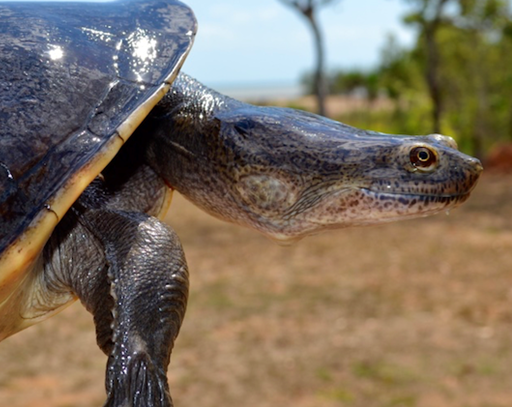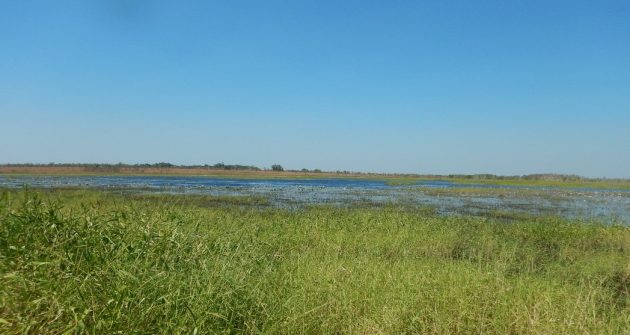
Mercury contamination in freshwater turtles of the Northern Territory: an emerging problem with consequences for wild life and human health
The Northern Australia freshwater turtles are considered an important source of protein for indigenous communities, which expressed concerns about their current health and condition. In the past five years, traditional owners have expressed concerns about the health and condition of their turtles, particularly the Northern Long-necked turtle (Chelodina oblonga). There are anecdotal reports on a high number of turtles observed dead or in poor health condition with lower fat content over the floodplains. Turtles have several advantages as biomonitors of environmental contamination compared to many other species. They are widely distributed, occupy a variety of habitats and have sufficient tissue mass for multiple endpoint measurements.

Their long-life spans also allow monitoring of long-term trends of environmental pollutants. In 2019, a preliminary study based in Darwin and its surroundings (Northern Territory), found high levels of mercury on carapaces of long-necked turtles found dead. There is no previous study on heavy metal levels of freshwater turtles in northern Australia. Our study aims to provide baseline data and an initial evidence for potential high levels of mercury on long-necked turtles in Northern Australia. This information will also allow us to create recommendations on dietary intake rates for human consumption of turtle meat, according to the mercury present in turtle tissues. We are also interested on the potential toxic effects of mercury bioaccumulation on the animal itself. Currently, the lack of knowledge on specific health effects of mercury bioaccumulation on Australia freshwater turtles precludes any meaningful speculation of its toxicological significance.
